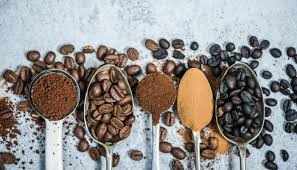How does caffeine affect your health?

Caffeine is well known for the instant boost that it provides to the people and drives off tiredness as soon as you consume it. You feel energetic after the immediate consumption of coffee as it immediately breaks down as soon as it enters your bloodstream.
There are a variety of companies that manufacture coffee from different beans. Moreover, there are various other drinks that have caffeine in them. Have a glimpse at the caffeine content in each one of them -
- Espresso: 240–720 mg
- Coffee: 102–200 mg
- Decaffeinated coffee: 3–12 mg
- Cocoa beverage: 2–7 mg
- Chocolate milk: 2–7 mg
- Energy drinks: 50–160 mg
- Brewed tea: 40–120 mg
- Soft drinks: 20–40 mg
1. Caffeine boosts metabolism and helps in fat burning -
Due to its ability to stimulate the central nervous system, it has a direct impact on the weight loss, by increasing it by 13% and boosting metabolism by 11%. Studies suggest that people who consume caffeine are fitter than the people who do not consume.
2. May protect the drinker against heart diseases and diabetes -
3. Caffeine enhances mood and brain functions -
Caffeine is capable of blocking adenosine, which is a brain signalling molecule and releases dopamine and norepinephrine, which boosts up the mood instantaneously. This changes in the brain lifts up your mood instantly. Yet, it does not implies that increasing the caffeine content will boost your mood proportionately. Keep a time gap of minimum 6 - 8 hours before the consumption of another cup of coffee.
4. Intensifies exercise performance -
Since caffeine helps to boost the metabolism, it increases the use of fat as fuel. This is helpful as the glucose stored in your body lasts longer while workout, making you feel less tired and fatigued than usual.
Caffeine is well known for the instant boost that it provides to the people and drives off tiredness as soon as you consume it. You feel energetic after the immediate consumption of coffee as it immediately breaks down as soon as it enters your bloodstream.
There are a variety of companies that manufacture coffee from different beans. Moreover, there are various other drinks that have caffeine in them. Have a glimpse at the caffeine content in each one of them -
- Espresso: 240–720 mg
- Coffee: 102–200 mg
- Decaffeinated coffee: 3–12 mg
- Cocoa beverage: 2–7 mg
- Chocolate milk: 2–7 mg
- Energy drinks: 50–160 mg
- Brewed tea: 40–120 mg
- Soft drinks: 20–40 mg
1. Caffeine boosts metabolism and helps in fat burning -
Due to its ability to stimulate the central nervous system, it has a direct impact on the weight loss, by increasing it by 13% and boosting metabolism by 11%. Studies suggest that people who consume caffeine are fitter than the people who do not consume.
2. May protect the drinker against heart diseases and diabetes -
Not paying heed towards the rumors regarding the increamen in rate of heart diseases due to caffeine, studies have shown had caffeine decreases the rate f heart related diseases by 13 - 15%. It also serves as a protection against diabetes.
3. Caffeine enhances mood and brain functions -
Caffeine is capable of blocking adenosine, which is a brain signalling molecule and releases dopamine and norepinephrine, which boosts up the mood instantaneously. This changes in the brain lifts up your mood instantly. Yet, it does not implies that increasing the caffeine content will boost your mood proportionately. Keep a time gap of minimum 6 - 8 hours before the consumption of another cup of coffee.
4. Intensifies exercise performance -
Since caffeine helps to boost the metabolism, it increases the use of fat as fuel. This is helpful as the glucose stored in your body lasts longer while workout, making you feel less tired and fatigued than usual.
